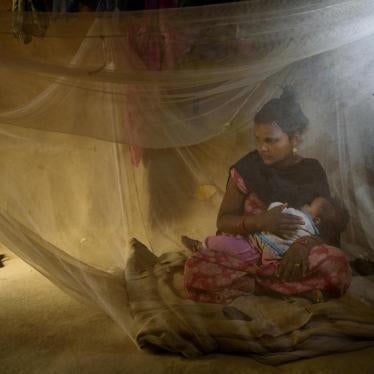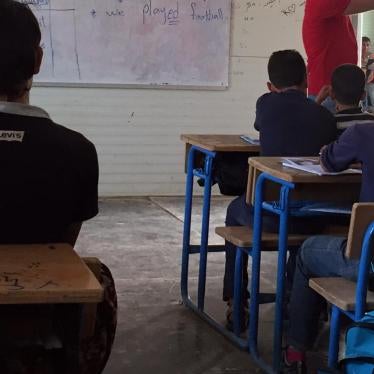(New York) - The Pakistani government should immediately rescind the June 4 presidential decree imposing tight restrictions on the country’s broadcast media, Human Rights Watch said today.
President Gen. Pervez Musharraf’s decree gives the Pakistan Electronic Media Regulation Authority (PEMRA) the unfettered power to halt broadcast transmissions, close offices, seize equipment, revoke licenses, and increases fines for violations tenfold. The government has already placed tight restrictions on live broadcasts.
“The Pakistani media is only doing its job by reporting on the government’s troubles. Pakistani citizens denied access to information are now paying the price,” said Brad Adams, Asia director at Human Rights Watch. “Musharraf’s decree is a disgraceful assault on media freedom imposed by a leader who came to power by a coup instead of the ballot box.”
The Pakistani media has come under increasing pressure since Musharraf triggered a political and judicial crisis on March 9 by his unlawful dismissal of the chief justice of the Supreme Court, Iftikhar Mohammad Chaudhry. The media have faced immense pressure, coercion and violent attacks by the government in order to tone down coverage of anti-government protests and the peaceful campaign to restore the chief justice.
The political crisis deepened on May 12, when 42 people died in violence fomented by activists of the Mutahedda Qaumi Movement (MQM), a major coalition partner in the Musharraf government, in a bid to prevent Chaudhry from entering Karachi to address the Sindh High Court Bar Association. As part of its coverage of the day’s events, a private television channel, Aaj TV, broadcast live footage of armed MQM activists roaming outside its offices. Angered by the telecast, MQM activists fired shots at the Aaj TV office and set fire to more than a dozen vehicles in the station’s parking lot. Musharraf has supported the MQM’s conduct and repeatedly criticized the media for “sensationalism” in its coverage of the political crisis.
“I will see to the media myself,” Musharraf said May 15 at a meeting of his supporters in Islamabad where he countered criticism of the MQM by instructing his supporters to “stand united.”
On May 22, the Mohajir Rabita Council (MRC), an affiliate of the MQM, issued a statement naming 12 eminent Pakistani journalists as “enemies.” These included journalists from the Pakistani print and electronic media as well as Pakistani journalists working for the Associated Press (AP) and the Agence France-Presse (AFP) wire services. On May 29 identical envelopes, each containing a 30mm bullet, were planted in the cars of three journalists, two of whom had been named in the MRC statement. Two of the three journalists are affiliated with AFP and one with AP.
“These threats present a real danger to journalists. The MQM has a long record of political harassment, extortion, torture and targeted killings,” said Adams. “Musharraf’s failure to take action against the MQM suggests that he condones the MQM’s behavior.”
The Pakistani government has also blocked transmission of private television channels by coercing cable operators to pull private channels, including Aaj TV, Geo TV, and ARY Television, off the air. At a June 2 Karachi press conference, Khalid Sheikh, the president of the Cable Operators Association of Pakistan, announced that the association would “monitor” channels and take off the air any channels that broadcast programming against “national security, the armed forces of Pakistan and the judiciary.” His organization is unregistered and has no legal authority to take such action.
On June 3-4, Geo TV and Aaj TV transmissions were blocked by cable operators on the government’s orders and were unavailable in large parts of the country.
On June 5, some 200 journalists peacefully protesting the presidential decree in Islamabad were charged with violating Section 144 of the country’s criminal procedure code, which allows the government to prohibit public gatherings of four or more people. The charges were later dropped in the face of protests by Pakistani and international human rights groups and journalists’ bodies.
Human Rights Watch reiterated the concerns contained in its April 27 letter to Musharraf about his government’s systematic violation of the fundamental rights of members of the press corps through threats, harassment, and arbitrary arrests, torture and “disappearances.”
“Instead of taking steps to protect journalists and media freedom, Musharraf’s government has intensified its assault on the press,” said Adams. “Musharraf should realize that stifling the media will not prevent power ebbing away from him. It will only hasten it.”







